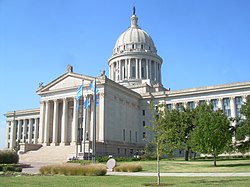A break from Jim Thorpe to mark the death yesterday of Tony Curtis.
“ ‘The cat’s in the bag and the bag’s in the river.’
This is Sidney Falco speaking.”
The year was 1997. The voice on the phone was indeed "Falco," speaking that famous line from Sweet Smell of Success. Tony Curtis was a key
source for my biography of Burt Lancaster that would be published in 2000. I’d
been trying for months to get an interview with him. Here he was, suddenly, with no advance
warning, calling from Los Angeles, gleefully playing
for me his venal, hyper-eager press agent. The 1957 movie bombed at the box office – “This
was a feel-bad movie,” exulted
Curtis, still delighted with the film’s unrepentant cynicism that repelled that
decade’s filmgoers. But Sweet Smell had the last laugh, giving us the enduring Manhattan archetypes of Falco and Lancaster’s Walter Winchell
clone, J. J. Hunsecker.
Both Hollywood stars – and they were huge in 1957 –
were New Yorkers first and foremost. Curtis from the Bronx, Lancaster from East
Harlem. As Curtis told me, they knew the script in their bones and were
essentially playing Big Apple aspects of themselves. “Look at the way Sidney
looked,” said Curtis. “So… perfect. Good-looking,
lean, silk shirts, tapered trousers. Couldn’t get out of that environment. He’s
there forever.”
Curtis, born Bernie Schwartz in 1925, got so far
out of that New York environment he was able to play a hilariously
pitch-perfect Cary Grant knock-off in Some
Like It Hot and an improbable circus aerialist flying through the air in Trapeze. There’s usually, however, a
cost to such success, a stench, as Sweet
Smell vividly shows. Curtis would go on to have the typical Hollywood
problems of multiple marriages, substance abuse, a declining career.
But he never forgot who he started out as and the
hunger to escape the accidental limitations of birth. His Bronx Jewish energy
fueled his ambition, as it does Falco’s, forever, on film – and his survival. Curtis
reinvented himself as a painter, a good one. To judge from my interview, at
least, he never lost a sharp, observant, highly intelligent New York humor.
From that first Falco line to the last good-bye, I pretty much laughed, hard, while
somehow managing to take good notes.
“I’d like to take a bite out of you,” says Hunsecker
to Falco. “You’re a cookie full of arsenic.” Curtis gives Lancaster a knowing
smirk. Sidney Falco was Bernie Schwartz if
he’d never escaped to Hollywood.






